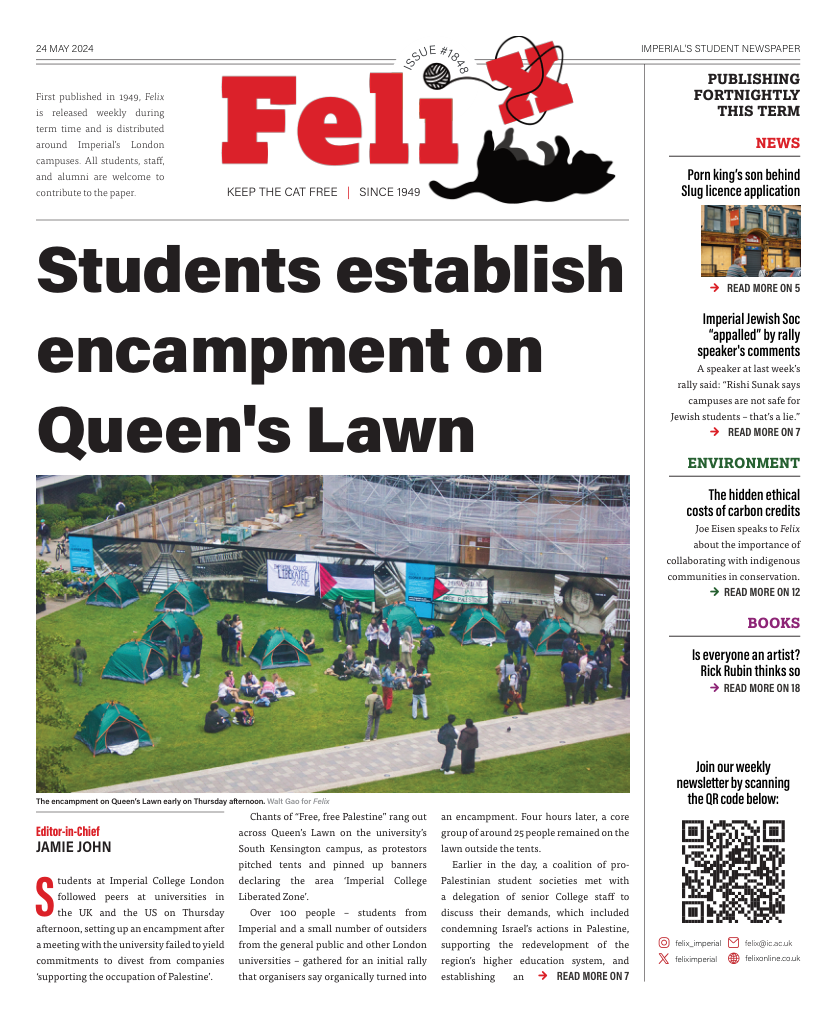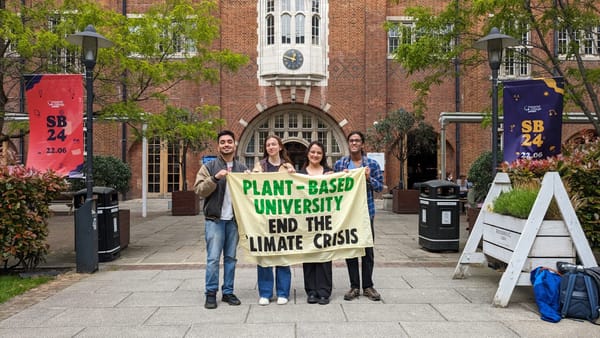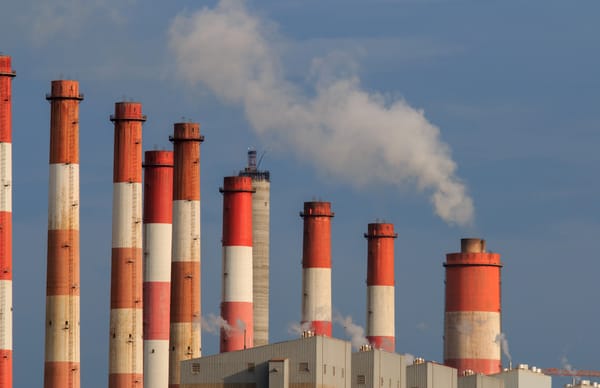Imperial's new plan to save 519,500 tCO2e and get to net zero
In 2020, Imperial committed to reaching net zero carbon emissions by 2040 and reducing their emissions by 15% by 2025-26. The Annual Sustainability Report 2022-23 recommits to achieving net zero for their operational emissions (about 20% of Imperial’s total) without offsets by 2040.
Imperial’s decarbonisation strategy, created by Arup, launched in March. The strategy includes commitments to get off Combined Heat and Power for good by 2030 and to switch to heat pumps in district heating systems across South Kensington, North Acton, and White City. Where there aren’t heat pumps, Imperial is investing in them, and where buildings aren’t energy efficient enough for heat pumps the College plans fabric improvements to enable their use. We can expect change soon, with easy wins delivered by July.
Imperial signed off on the fully-costed plan, committing £1-1.5 billion to decarbonisation over the next 16 years. The strategy explains how, by 2040, the College will avoid emitting 519,500 tonnes of CO2 equivalent (tCO2e), and reach net zero operational emissions excluding transport. Despite recent improvements, Imperial has the highest emissions per full time staff and students among UK universities and is in the top five total by operational (scopes 1 and 2) emissions.
As part of decarbonising Estates, White City South will be a zero fossil-fuel campus and a heat pump has been installed at the Clinical Research Building at Hammersmith Hospital. New major developments will be Building Research Establishment Environmental Assessment Method (BREEAM) rated or similar from this year on. There are plans to electrify the first-floor kitchens in the Sherfield Building. Electrification of kitchens is an improvement not just for emissions, but also means cooler kitchens for staff.
Commitments are made and targets are set across the board in the College’s Sustainability Report and Carbon Reduction Plan. In terms of procurement, which is about half of Imperial’s scope 3 (indirect) emissions, all major suppliers will be assessed on their environmental policies by this September. Most of the emissions from our labs are part of procurement, but Imperial is on target for all labs to be engaged in an efficiency programme by summer 2026.
The College’s ICT is 30% of total emissions. The ICT team plans to work on baselining power consumption across campus to give them better knowledge of where energy could be saved and switching off devices when not in use.
Travel is a major source of Imperial’s emissions, with business travel making up 10% of total emissions and student travel an even larger portion. Imperial aims to reduce emissions from air travel by 25% per staff full-time equivalent by 2025-26. The College is also exploring carbon pricing to address the remaining emissions from commuting and business travel. Arup’s strategy doesn’t cover transport emissions, which do fall under the net zero target, but the College is currently rolling out its new Sustainable Travel Policy..
Another source of carbon emissions is our diets. Beef is much more carbon intensive than other foods, and Imperial has reduced the amount of it on its menus by 47%. The College plans to eliminate beef fully from menus by 2025-26. Cooking oil consumption has also decreased by 50%.
Student and staff engagement on sustainability is ramping up. This year we’ve had Sustainability Fortnight, hosted the London Student Sustainability Conference, and continued to be involved in Students Organising for Sustainability - not to mention student societies and campaigns. Imperial is committed to further engaging people in these events and eventually running a mandatory sustainability induction course for staff, following a climate literacy staff course planned in autumn.
Despite major efforts to decarbonise, Imperial continues to invest in fossil fuels. They commit in their Socially Responsible Investment Policy to using their relatively “modest” endowment to influence fossil fuel companies’ behaviour and engage in “regular, honest, assessment of progress, rather than rhetoric” with the same industries which hid climate science from the public for decades.
Nonetheless, Imperial’s new sustainability policy presents a major set of commitments and is a good reason to get excited about decarbonisation on campus.









